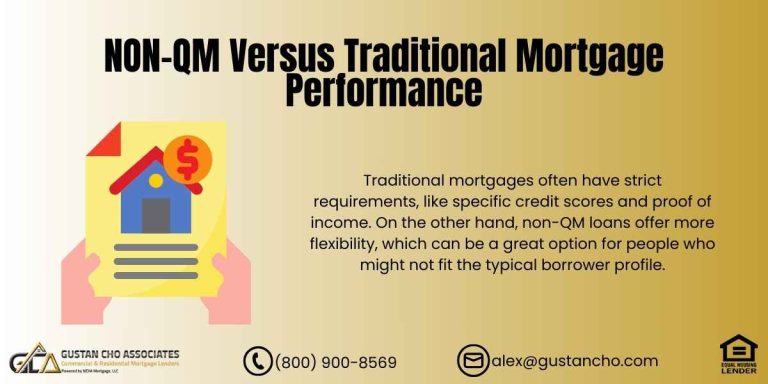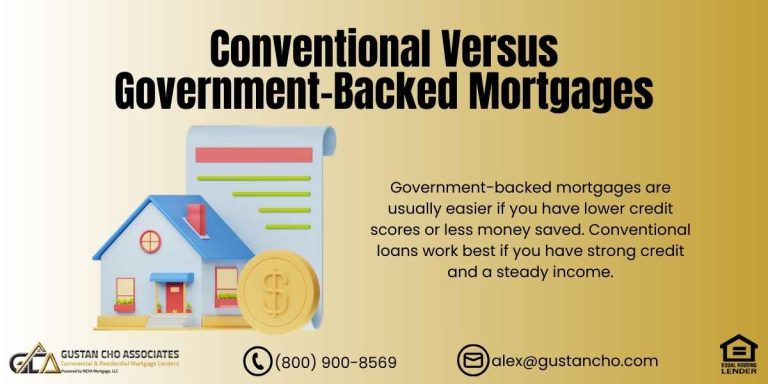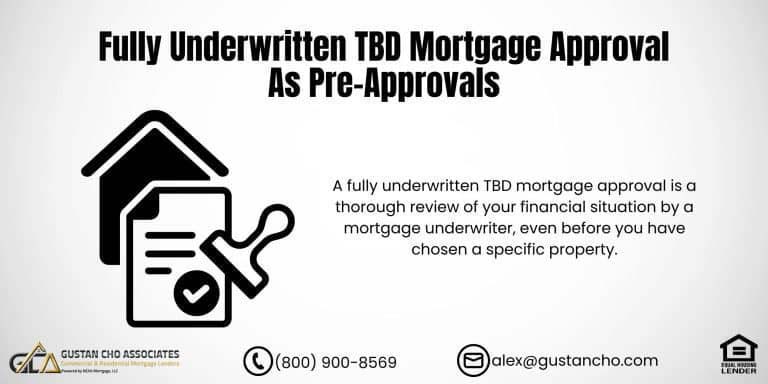In this blog, we will cover and discuss the statute of limitations on collection accounts and charge-offs. We will go into detail on how older collection accounts affect qualifying for a mortgage. The Great Recession of 2008 has affected the financial lives of many Americans in this country as well as globally.
Hard-working Americans not only lost their jobs and businesses, but homeowners lost equity in their homes. Many lost their homes to foreclosure. Countless Americans also lost their retirements and businesses.
Never before in history has so many hard-working Americans filed bankruptcy and lost their homes to foreclosure. For those who did not file for bankruptcy protection, their credit has suffered. Many ended up with judgments, collections, and charge-offs that still remain on their credit reports today.
Qualifying For FHA Loans With Collections and Charge-Off Accounts
Homebuyers can qualify for FHA loans with outstanding collections and charge-off accounts. FHA Guidelines On Collections does not require home buyers to pay outstanding collections and charge off accounts to qualify. Borrowers can have outstanding collections, charge offs, judgments, and tax liens and still qualify for FHA Loans. With tax liens and judgments, borrowers need to get a written payment agreement. Borrowers need to make three monthly payments. Medical collections are exempt from debt to income ratio calculations.
Home Loans With Outstanding Non-Medical Collections and Charge-Offs
With non-medical collections, here is how it works: Borrowers do not have to pay off non-medical collections. However, if applicants have $2,000 or more in outstanding non-medical collection accounts here is how it works: Then 5% of the outstanding balance is used as if it were a monthly debt of the borrower. This holds true even though they do not have to pay. If 5% of the outstanding collection accounts is too much for the home buyer to qualify, the mortgage applicant can make a written payment agreement with the collection agency on a monthly repayment plan: That figure will be used in lieu of the 5% of the outstanding collection amount. Charge-off accounts are exempt from debt to income ratio calculations.
Confused About the Statute of Limitations on Collections?
Learn how the statute of limitations on collection accounts and bad credit really impacts your mortgage approvalRecovery From The Great Recession of 2008
Since the economy and the housing market have recovered, what should a consumer do now since it has been years since the Great Recession of 2008?
- File bankruptcy?
- Negotiate with the previous creditors?
Consumers should first see if the collection account is still valid. They should see if the statute of limitations on collection accounts has passed, or if it has not, consumers may want to see if they want to see how much longer they need to wait for the statute of limitations on collection accounts to take effect.
Types of Contracts
Below are the State Statutes of Limitations On Collection Accounts for various kinds of agreements. All figures are in years.
Oral Contracts: Oral contracts are when consumers verbally agree to pay back the money that is loaned to them. However, oral contacts are very difficult to prove in court.
Written Contract: Written contracts are when an agreement between creditor and debtor and the terms is written and signed by both parties.
Promissory Note: Promissory notes are a special form of a written contract. But the difference with a promissory note is that the scheduled payments. The interest on the loan is written out on the promissory note. Why should you care about the Statute of Limitations On Collection Accounts (SOL).
Statute of Limitations on Collection Accounts
Below is a chart on the statute of limitation on collection accounts:
| State | Oral | Written | Promissory | Open-ended Accounts | State Statute: Open Accounts |
| AL | 6 | 3 | 6 | 3 | §6.2.37 |
| AR | 3 | 5 | 3 | 5 | §4-3-118 |
| AK | 6 | 3 | 3 | 3 | §09.10.053 |
| AZ | 3 | 6 | 6 | 6 | HB 2412 |
| CA | 2 | 4 | 4 | 4 | §337 |
| CO | 6 | 6 | 6 | 6 | §13-80-103.5 |
| CT | 3 | 6 | 6 | 6 | Chapter 926 Sec 52-576 |
| DE | 3 | 3 | 3 | 3 | Title 10 Sec.8106 |
| DC | 3 | 3 | 3 | 3 | §12-301 |
| FL | 4 | 5 | 5 | 4 | §95.11 |
| GA | 4 | 6 | 6 | 4** | §9-3-25 |
| HI | 6 | 6 | 6 | 6 | HRS 657-1(4) |
| IA | 5 | 10 | 5 | 10 | §614.1.5 |
| ID | 4 | 5 | 5 | 5 | §5-216 |
| IL | 5 | 10 | 10 | 5 or 10*** | 735 ILCS 5/13-206 |
| IN | 6 | 10 | 10 | 6 | §34-11-2-9 |
| KS | 3 | 3 | 3 | 3 | §60-512 |
| KY | 5 | 15 | 15 | 5 or 15 | §413.120 & 413.090 |
| LA | 10 | 3 | 10 | 3 | §2-3494-4 |
| ME | 6 | 6 | 6 | 6 | §14-205-752 |
| MD | 3 | 3 | 6 | 3 | §5-101 |
| MA | 6 | 6 | 6 | 6 | §260-2 |
| MI | 6 | 6 | 6 | 6 | §600.5807.8 |
| MN | 6 | 6 | 6 | 6 | §541.05 |
| MO | 5 | 5 | 5 | 5 | §516.120 |
| MS | 3 | 3 | 3 | 3 | §15-1-29 |
| MT | 5 | 8 | 8 | 8 | 27-2-202 |
| NC | 3 | 3 | 5 | 3 | §1-52.1 |
| ND | 6 | 6 | 6 | 6 | 28-01-16 |
| NE | 4 | 4 | 4 | 4 | §25-206 |
| NH | 3 | 3 | 3 | 3 | 382-A:3-118 |
| NJ | 6 | 6 | 6 | 6 | 2A:14-1 |
| NM | 4 | 4 | 4 | 4 | §37-1-4 |
| NV | 4 | 4 | 4 | 4 | NRS 11.190 |
| NY | 6 | 6 | 6 | 6 | §2-213 |
| OH | 6 | 6 | 6 | 6 | §2305.07 |
| OK | 3 | 3 or 5 | 5 | 3 or 5 | §12-95A(1), (2) |
| OR | 6 | 6 | 6 | 6 | §12.08 |
| PA | 4 | 4 | 4 | 4 | 42 Pa. C.S.5525(a) |
| RI | 10 | 10 | 10 | 10 | §6A-2-725 |
| SC | 10 | 10 | 3 | 3 | SEC 15-3-530 |
| SD | 3 | 6 | 6 | 6 | §15-2-13 |
| TN | 6 | 6 | 6 | 6 | 28-3-109 |
| TX | 4 | 4 | 4 | 4 | §16.004 |
| UT | 4 | 6 | 6 | 4 | 78-12-25 |
| VA | 3 | 5 | 6 | 3 | 8.01-246 |
| VT | 6 | 6 | 5 | 6 | §9A-3-118 |
| WA | 3 | 6 | 6 | 6 | 4.16.040 |
| WI | 6 | 6 | 10 | 6 | 893.43 |
| WV | 10 | 10 | 10 | 10 | §55-2-6 |
| WY | 8 | 10 | 10 | 8 | §1-3-105 |
Collection Accounts
Every day, consumers pay off outstanding collection accounts and charge-off accounts that they do not have to pay off. This is because the Statute of Limitations On Collections has already expired for the open account. The main reason why consumers pay off these collections and charge off accounts is that these accounts still appear on consumer credit reports. Consumers need to realize that creditors only have a limited amount of time to sue you. Statute of Limitations on collection accounts starts from the date of last activity on the debt consumers owe. The right for creditors to collect has nothing to do with the negative reporting item on consumer credit reports.
Collection Accounts Not Reported on Credit Report
Consumers are sometimes tricked into paying outstanding collection accounts not reporting on their credit reports. Beware of collectors trying to trick to pay collection accounts that have the statute of limitations on collection accounts expired but yet trying to collect on the collections and charge offs.
Statute of Limitations on Collection Accounts and Bad Credit Explained
Don’t let guesswork decide your next move with collectors or lendersDoes The Statute of Limitations on Collection Accounts Make Debts Go Away?
The Statute of Limitations on Collection Accounts will not always make consumer debts diminish after the statute expires. Creditors can still try to sue consumers. However, consumers will have the defense that the statute of limitations on collection accounts has passed. It is the job and right of the consumer to present the defense that the statute of limitations on collection accounts has passed.
How to Qualify for a Mortgage with Outstanding Unpaid Collections and Debts
Just because the statute of limitations on collection accounts has expired does not mean that consumers just ignore a lawsuit from creditors. Consumers should tell the collection agency and/or creditor that the debt is no longer valid due to the statute of limitations on collection accounts that have passed. Consumers who are served with a lawsuit should go to court and present to the judge that the debt is no longer valid because the statute of limitations has passed.
Start Date of Statute of limitations on Collection Accounts
Statute of Limitations on Collection Accounts is a set amount of time by law if the creditor does not do anything to collect the debt owed by the debtor, the debt owed is no longer collectible. There is a start date when the statute of limitations on collection accounts starts. Here is the start date:
Date of Last Activity or DLA
This date is the date that debtors failed to make a payment on their credit account. The date that the creditor sent the consumer a demand letter for the full amount of payment. In the event, if creditors do not go after the consumer in a time frame permitted by law, consumers do have the right of defense against the creditor. The creditor can no longer come after them due to the elapse of the statute of limitations on collections accounts: Consumers should take the date of the last activity. This is the date of the last payment made by the consumer or the date of payment demand letter by the creditor. Then add the time that has elapsed by the statute of limitations on collections accounts in the state the debtor defaulted.
Case Scenario on Statute of Limitations on Collection Accounts
Case Scenario: The consumer date of last activity on credit card payment was January 15, 2001. The credit card company sent a demand letter for full payment on July 15, 2001. There is a 6-year statute of limitations on credit cards.
The Statute of Limitations on Credit Cards
Consumers with outstanding collections and charge-off accounts can still qualify for FHA Loans. Homebuyers with collections and charge-offs do not have to pay off outstanding collections and/or charge off accounts. For more information, contact us at Gustan Cho Associates Mortgage Group at 800-900-8569 or text us for a faster response. Or email us at gcho@gustancho.com.
Statute of Limitations on Debt Collection By State
The definition of a statute of limitations on debt collection is a window of time that a creditor or debt collector has to pursue legal action against a debtor of an unsatisfied or defaulted debt. Once this statute of limitations on debt collection period expires, the debt collector and/or creditor can no longer pursue the collection of the debt. Debtors is no longer responsible for outstanding debts and charged-off accounts. The court system is not a debt collector. It is up to the debt collector to utilize this statute of limitations on debt period to pursue their right to collect on an unpaid debt
Bad Credit and Old Collections But Ready to Buy a Home?
Learn which accounts matter for approval and which are past the statuteExpiration of Statute of Limitations on Debt Collection
Statute of limitations on debt collection are set by the individual states and not the federal government. Each state has its own statute of limitations on debt collection. Old debts that has expired and passed the statute of limitations on debt collection time limits are known as time-barred debts. Technically, consumers still owe on the debts that have past the statute of limitations on debt collection period. But the courts cannot issue a judgment against them. Consumers sued by a creditor or debt collector on an aged debt that has passed the statute of limitations on debt collection limits, go to court with proof that statute of limitations has expired. The judge will throw the case out.
Types of Consumer Debts
There are four different types of debt structures and there is a separate statute of limitations concerning these four different types of debt categories.
Oral contract debt structure
Oral agreements are verbal contractual agreements made between a debtor and creditors and it is not in writing. Normally oral agreements are tough to prove unless there is a recording made or eyewitnesses
Written agreements and contracts
Written agreements and contracts are contractual agreements between the debtor and creditor. It normally includes the terms of the the debt. The repayment method as well as the interest charged and consequences of the default. Medical debts would be an example of written agreements.
Promissory note contract
A promissory note is a written agreement between the debtor and creditor. The promissory note has the terms and rates of the note. Residential mortgage loans, and student loans are examples of promissory note contracts.
Open-ended credit accounts
Revolving open-ended credit accounts are revolving credit accounts where consumers can charge up to a set credit limit by the creditor and pay a minimum payment until the balance is zero. Consumers can then charge it again up to the credit limit:
- Credit cards
- Department store cards
- Jewelry store credit cards
- Furniture store cards
The above are examples of revolving open-ended credit accounts.
Statute of Limitations on Debt Collection By Each State
As mentioned earlier, each individual state has their own statute of limitations expiration period on the four categories of debt. Each category has different statute of limitations expiration periods. The chart below is a summary of the statute of limitations on each individual state per category. Double-check your debt type and confirm the statute of limitations guidelines with your state or your attorney. The chart below may be outdated or the state might have modified their statute of limitation period.
| State | Oral | Written | Promissory | Open |
| Alabama | 6 | 6 | 6 | 3 |
| Alaska | 6 | 6 | 3 | 3 |
| Arizona | 3 | 6 | 6 | 3 |
| Arkansas | 6 | 6 | 3 | 3 |
| California | 2 | 4 | 4 | 4 |
| Colorado | 6 | 6 | 6 | 6 |
| Connecticut | 3 | 6 | 6 | 3 |
| Delaware | 3 | 3 | 3 | 4 |
| Florida | 4 | 5 | 5 | 4 |
| Georgia | 4 | 6 | 6 | 4 |
| Hawaii | 6 | 6 | 6 | 6 |
| Idaho | 4 | 5 | 5 | 4 |
| Illinois | 5 | 10 | 10 | 5 |
| Indiana | 6 | 10 | 10 | 6 |
| Iowa | 5 | 10 | 5 | 5 |
| Kansas | 3 | 6 | 5 | 3 |
| Kentucky | 5 | 15 | 15 | 5 |
| Louisiana | 10 | 10 | 10 | 3 |
| Maine | 6 | 6 | 6 | 6 |
| Maryland | 3 | 3 | 6 | 3 |
| Massachusetts | 6 | 6 | 6 | 6 |
| Michigan | 6 | 6 | 6 | 6 |
| Minnesota | 6 | 6 | 6 | 6 |
| Mississippi | 3 | 3 | 3 | 3 |
| Missouri | 5 | 10 | 10 | 5 |
| Montana | 5 | 8 | 8 | 5 |
| Nebraska | 4 | 5 | 5 | 4 |
| Nevada | 4 | 6 | 3 | 4 |
| New Hampshire | 3 | 3 | 6 | 3 |
| New Jersey | 6 | 6 | 6 | 6 |
| New Mexico | 4 | 6 | 6 | 4 |
| New York | 6 | 6 | 6 | 6 |
| North Carolina | 3 | 3 | 5 | 3 |
| North Dakota | 6 | 6 | 6 | 6 |
| Ohio | 6 | 15 | 15 | 6 |
| Oklahoma | 3 | 5 | 5 | 3 |
| Oregon | 6 | 6 | 6 | 6 |
| Pennsylvania | 4 | 4 | 4 | 4 |
| Rhode Island | 15 | 15 | 10 | 10 |
| South Carolina | 3 | 3 | 3 | 3 |
| South Dakota | 3 | 6 | 6 | 6 |
| Tennessee | 6 | 6 | 6 | 6 |
| Texas | 4 | 4 | 4 | 4 |
| Utah | 4 | 6 | 6 | 4 |
| Vermont | 6 | 6 | 5 | 3 |
| Virginia | 3 | 5 | 6 | 3 |
| Washington | 3 | 6 | 6 | 3 |
| West Virginia | 5 | 10 | 6 | 5 |
| Wisconsin | 6 | 6 | 10 | 6 |
| Wyoming | 8 | 10 | 10 | 8 |
Qualifying For Mortgage With Outstanding Collections and Charge-Offs
Borrowers can qualify for FHA, VA, and Conventional Loans with outstanding collections and charged off accounts without having them to pay them. FHA loans have the most lenient mortgage guidelines for borrowers with outstanding collections and charge off accounts. HUD, the parent of FHA, classifies collections into two different categories:
- Non-Medical Collections
- Medical Collections
Statute of Limitations on Collection Accounts
FHA Guidelines on Collections and Charge-Off Accounts state that if borrowers have more than $2,000 of non-medical outstanding collection accounts, the lender needs to take 5% of the outstanding unpaid collection account balance and use that figure as a hypothetical monthly debt when calculating debt to income ratios of borrowers. They do not have to pay it off but it is a hypothetical figure used in DTI Calculations. This can be an issue when borrowers have substantial non-medical collection account balances. In lieu of the 5% rule, borrowers can make a written payment agreement with creditor and that agreed upon monthly payment can be used. charged-off accounts do not matter and neither do medical collections. Homebuyers and Homeowners who need to qualify for mortgage with a direct lender with no overlays on government and conventional loans, please contact us at Gustan Cho Associates at 800-900-8569 or text us for a faster response. Or email us at gcho@gustancho.com.









